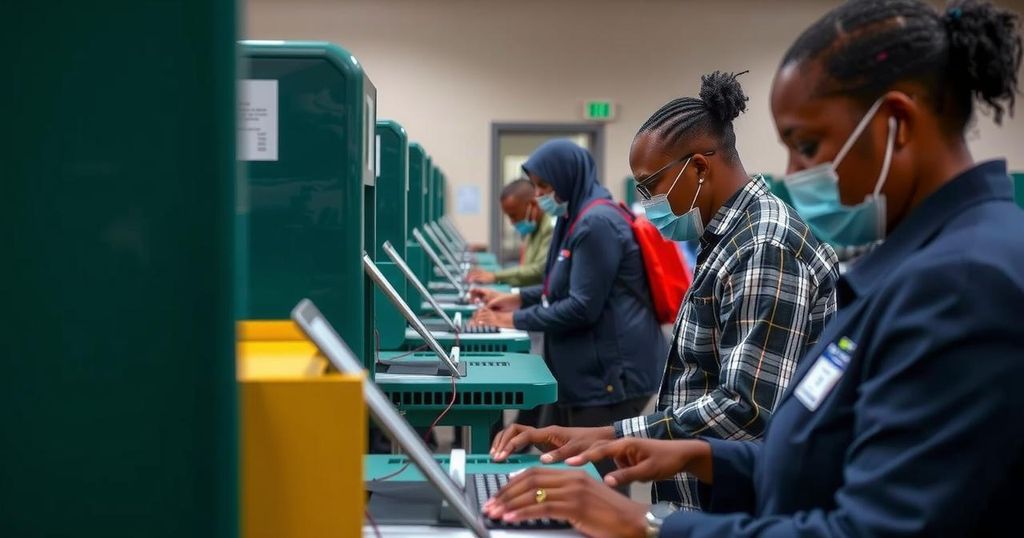Namibia has extended voting for its presidential and parliamentary elections due to ballot paper shortages, facing opposition allegations of illegality. This decision has led to long queues and uncertainty among voters. Vice President Netumbo Nandi-Ndaitwah seeks to become the first female president amid high unemployment and public discontent with the ruling party’s performance. The electoral challenges echo broader regional issues of political unrest.
Namibia has decided to extend its presidential and parliamentary voting due to a shortage of ballot papers, prompting allegations of electoral fraud from the main opposition party, the Independent Patriots for Change. Originally set to conclude on Wednesday, the elections will now continue through Saturday as logistical issues have left many polling stations without necessary voting materials. Registered voters, approximately 1.4 million, have reported long lines and uncertainty about whether they will be able to cast their votes. This electoral situation occurs against a backdrop of unrest in Mozambique, where allegations of electoral fraud have also ignited protests. Vice President Netumbo Nandi-Ndaitwah, representing the ruling SWAPO party, aims to become Namibia’s first female president, amid an atmosphere of discontent fueled by high unemployment and economic challenges especially affecting the youth.
Namibia, which gained independence in 1990 after a long struggle against colonial rule, has predominantly been governed by the SWAPO party. While previous elections in the country have been labeled relatively credible, the current voting extension raises questions regarding the electoral process. The ongoing political context of dissatisfaction arising from economic disparities is pivotal, as a significant proportion of the population remains frustrated by high unemployment levels, particularly among the younger demographic. The electoral challenges experienced reflect broader regional issues of political dissatisfaction, particularly in Southern Africa.
The extension of the election period in Namibia has sparked criticism from opposition parties and raised concerns about the integrity of the electoral process in a historically stable democracy. The logistical problems leading to long voting lines underscore significant challenges within the electoral management system. As the country faces discontent over economic opportunities, the impact of this election will be crucial for both governmental leadership and public confidence in future democratic processes.
Original Source: apnews.com






